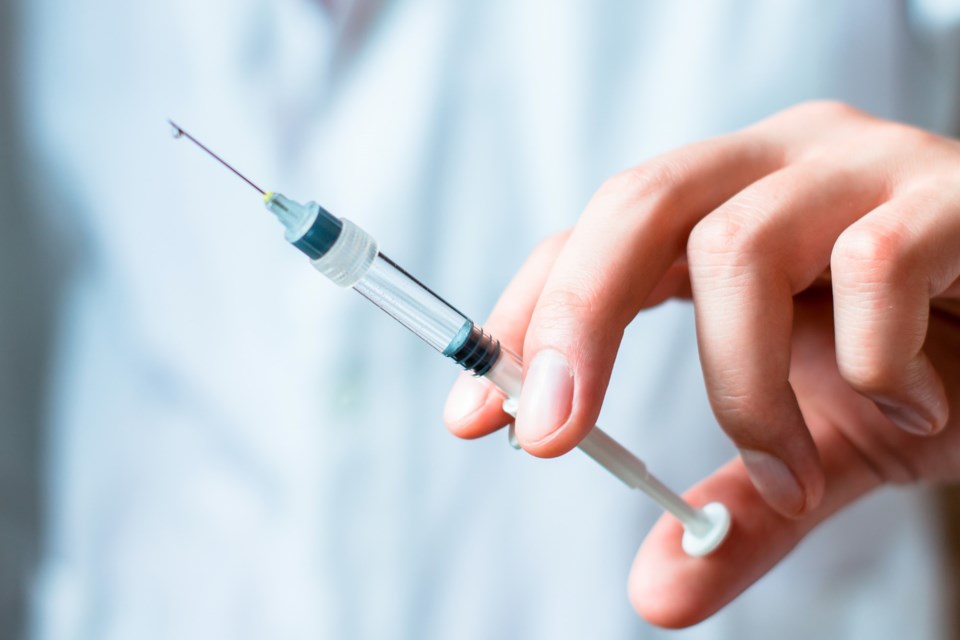Suspensions were handed out Feb. 14 and 15 to students who are not up to date on their immunization records.
Just under 600 suspensions were given to high school students at both Upper Grand District School Board and Wellington Catholic District School Board this week.
Only 150 or so students are still suspended, Public Health reports.
For students to go back to school they need to either get their vaccines, give a vaccine record to Wellington-Dufferin-Guelph Public Health (WDGPH), or submit a valid exemption, said Dr. Matthew Tenenbaum, associate medical officer of health at WDGPH. Exemptions include medical, philosophical or religious.
Just over 4,000 students were notified in the fall that they were not up to date with their vaccines. The number continued to drop after notices and robocalls were sent in the winter.
Prior to the suspensions, on Feb. 7, WDGPH delivered special orders as a last notice to the schools for students who were still overdue, said Tenenbaum.
For elementary students there are just under 8,000 students between both boards who are not up to date with their vaccines. After multiple notices are given suspensions will be given at the beginning of March.
A big part of it is record keeping, said Tenenbaum. The provincial system tracks the required vaccines for school entry and staying in school, he said.
If people get vaccinated at their family doctor’s office “which is where most vaccines are given, there isn't a mechanism right now for that to be submitted automatically to public health. So it's a manual process. I mention this because a lot of the people who initially are flagged as overdue, are probably people who had their vaccines on schedule, but its the records weren't with us,” he said.
Required vaccinations are ones that help prevent; measles, mumps, meningitis, rubella, pertussis, polio, tetanus, and diphtheria.
Public Health also recommends students be vaccinated against hepatitis B and HPV, said Tenenbaum. The chicken pox vaccine is required for those born after 2010 but is still recommended to those born before 2010.
WDGPH had 22 vaccine clinics in high schools that started in the fall. Public health clinics are open and walk-in appointments can be made “for those who just got the suspension and therefore, are now motivated to get their vaccine,” said Tenenbaum.
Public health has always had a philosophy “if someone wants to get a vaccine, go to them, make it easy for them. Don't make it a challenge,” he said.
“In this post emergency phase of the pandemic period, we've seen odd patterns with certain diseases, sometimes because immunization rates have fallen,” said Tenenbaum.
He noted the recent upswing of measles cases in Europe.
It takes all of us to maintain high levels of immunization to tamp down diseases and keep them rare, he said.
Tenenbaum explained there is high individual protection from disease like measles when you get two doses of the vaccine.
“And I also just want to make sure people understand that these vaccines are risks lurking out there in the background of our society, even if we're not in the midst of a big outbreak of something like measles. It's something that could happen to us,” he said.
“We know what's happening in other parts of the world because vaccine rates have fallen. And we don't want that to happen here. Getting our vaccines, getting people around us their vaccines are things that we can do to protect them and protect the general community around us.”
